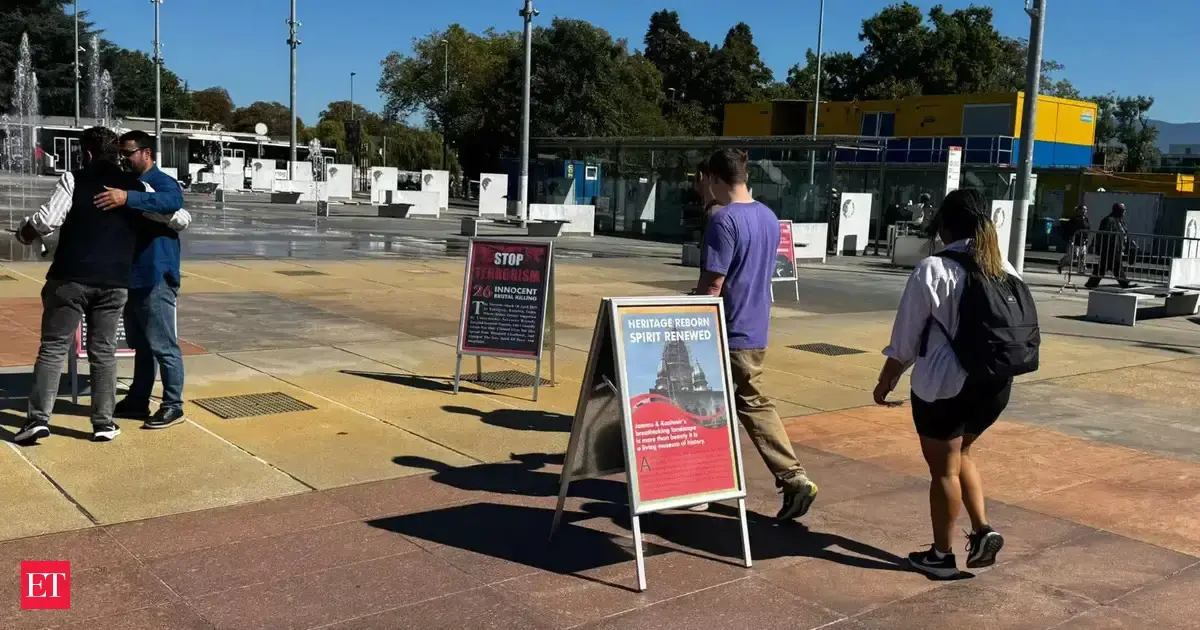
On April 3, Kathia Blanco received an official-looking email concerning her pending immigration case.
The subject line: “Notice of action.”
The message indicated Blanco’s application for permanent residence had been received by U.S. Citizenship and Immigration Services and was being processed.
The email included a large U.S. Department of Homeland Security seal and a signature from Jennifer B. Higgins, acting director of the citizenship agency. Blanco also received a form with fingerprint markings and a purported receipt from the federal government.
The Aurora resident had paid a Missouri-based immigration lawyer, Natasha Lopez Duran, $5,400 to help with her case. But Duran isn’t a licensed attorney in any state, and no one matching her name appears in a national database of immigration lawyers.
And the forms Blanco received from immigration officials? Those weren’t real, either.
Blanco unwittingly joined a growing number of Colorado immigrants who have been scammed by people impersonating lawyers.
Non-lawyers offering shoddy or outright fraudulent legal assistance to immigrants is a longstanding problem. But as the Trump administration pursues its unprecedented mass-deportation agenda, the number of immigrants seeking quick and affordable help has surged, Colorado immigration advocates and attorneys said.
And that makes them ripe for exploitation.
“The thing that makes me so angry is that these are people who are preying on individuals who are in the absolute worst position they’ve ever been in in their lives,” said Shira Hereld, staff attorney with the Rocky Mountain Immigrant Advocacy Network. “Every minute counts; every dollar counts.”
Immigrants are already vulnerable to other forms of abuse, particularly from landlords or employers. They’re more likely than American-born residents to have their wages stolen, be injured or killed on the job, or be discriminated against at work.
But the pressing demand for legal assistance has outstripped the supply of legitimate attorneys, advocates said. Scam artists have stepped into the vacuum, often trading on cultural misunderstandings about who can provide legal advice. They use immigrant social circles, social media ads and WhatsApp to entice clients, offering cheaper services than what a legitimate immigration attorney might cost.
Still, defrauded Coloradans routinely lost thousands of dollars in these schemes. They ended up missing key deadlines, filing documents to the wrong agency and were even barred from reentering the country — all based on incompetent or fraudulent legal advice. One family allegedly paid more than $34,000 to a Greeley woman who later incorrectly filled out a form and left one parent at risk of deportation, according to state disciplinary records.
The Colorado Attorney General’s Office has received 33 complaints about people practicing immigration law illegally since the beginning of 2021. Twenty-two of those complaints are from this year alone. The Office of Attorney Regulation Counsel, a division of the Colorado Supreme Court, has penalized at least nine individuals and companies since 2016 related to immigration cases.
Experts, though, said that’s likely a vast undercount since most victims of these scams don’t ever file reports.
As arrests, detentions and immigration proceedings reach record highs, experienced attorneys say it’s more important than ever to conduct due diligence when searching for a lawyer.
“Every step of the system, people are being taken advantage of,” said Jennifer Piper, interfaith organizing director in the American Friends Service Committee’s Denver immigrant rights program. “People are trying to do things the right way but are having every door and window shut in their face.”
How ‘notarios’ scam immigrants
Non-attorneys giving legal advice to immigrants has long been a problem in Colorado and elsewhere in the U.S.
State lawmakers in 2016 passed a bill making it a deceptive trade practice to offer legal advice in an immigration matter. The law, House Bill 16-1391, allows the Colorado attorney general or a district attorney to seek civil penalties under the Colorado Consumer Protection Act.
The law sought to crack down on “notarios” — a profession common in Latin American countries that is often mistaken for a notary public in the United States.
“Back in the day, we knew that there were a handful of people who were filling out applications for people, calling themselves notarios, and people were getting harmed as a result,” said Joy Athanasiou, a Denver-based immigration lawyer. “We knew who they were, (immigration lawyers) had really worked hard to get the state to toughen the penalties.”
Unlike American notaries, notarios in Latin America are officials with legitimate legal skills and training, according to Colorado legal regulators. They can draft documents, provide legal advice, settle disputes and archive documents.
Notaries in the U.S. can do none of those things.
But immigration law is considered one of the most complex legal areas in the U.S., and its requirements and terminology are confusing. Some notarios capitalize on that complexity — and immigrants’ misunderstanding of America’s legal regulations — by marketing immigration services that they are not allowed to offer in this country, interviews and court records show.
They fill out forms that don’t apply, check boxes that shouldn’t be checked, and assure clients they can return after attending immigration hearings abroad with no fear of being unable to come back. Oftentimes, they’ll withhold immigrants’ paperwork until the client agrees to pay them more, or they’ll stop responding to phone calls altogether.
For years, state legal regulators have repeatedly fined fake lawyers and ordered them to stop practicing law without a license. But in several cases reviewed by The Denver Post, they continued to do so.
One group, One Connection, was started by a receptionist at a Colorado Springs law firm, who took legal files from her boss, advertised on social media and promised help on immigration and divorce cases, according to legal filings. The company agreed to stop in 2016, only to resume business two years later. Two clients told state investigators that the company stopped responding to them.
One man sued to get his money back and accused the company of falsifying immigration paperwork. When he was awarded him a $2,500 judgment, One Connection refused to turn over his new green card until the man paid the money back.
Maleni Munguia, the former receptionist who helped start the company, did not return emails seeking comment.
Another man, Luis Lobo, was also ordered by the Office of Attorney Regulation Counsel to stop providing immigration services. Still, he allegedly later told one client to lie to immigration officials about how many times the man had entered the country, according to legal filings. The immigrant refused, and when he told the truth at a consular interview in Mexico, he was barred from entering the U.S. for a decade, according to court records.
Lobo declined to comment Wednesday.
Notarios will often promise to get clients work permits, attorneys said. To do so, they’ll file an asylum application. But not everyone qualifies for — or wants — asylum, attorneys said, and filing a frivolous claim risks steeper, even lifelong, penalties. The immigrants themselves may not even know that an asylum application has been filed on their behalf.
“It’s life-changing,” said Kelly Ryan, an immigration attorney in Denver. “Sometimes (notarios) do a fake asylum claim, and (their clients) are forever barred from everything. So even if they get married to a U.S. citizen or have U.S. citizen kids, they can’t even get a tourist visa to come back. A lot of people get stuck in Mexico, which is a really common thing with these notario scams.”
As scrutiny on notarios has grown, faux lawyers have refined their tactics. Two attorneys described immigrants attending fake virtual court hearings, complete with a judge, government attorney and U.S. government seal.
“One of the big clues that it was all fake was the fact that the judge was speaking Spanish,” Athanasiou said.
One of Ryan’s clients who went through one of the sham court proceedings was charged $25,000 by their fake attorney.
In a similar attempt to mimic legitimate proceedings, another of her clients was told to hold their finger up to their webcam — mimicking the fingerprinting that immigrants undergo.
It can be difficult to discern legitimate law firms from the shams. Inmigracion En Orden, the Missouri-based firm that tricked Blanco, presents a seemingly professional website, complete with client testimonials, claims of a 95% success rate and a purported roster of immigration and criminal attorneys.
The only problem? None of the attorneys listed on the website are licensed to practice law in Missouri.
The company urges prospective clients to message them on WhatsApp — a common tactic used by non-attorneys looking to lure desperate immigrants, advocates say.
While the cheaper rates from these notarios are appealing, experts say they have another thing going for them: faster response times.
When a loved one is in detention, for example, the desperation to get them out grows quickly. And unlike in federal or state court, immigration cases do not come with a public defender.
“For years, we used to believe that people hired notarios because they were confused or because they’re cheaper than attorneys,” said Belen Albuja, an immigration attorney in Denver. “But we’ve seen that the reason is not really the money — the reason is the instant gratification that notarios have with people.”
These fraudulent attorneys, though, often promise outcomes that are unrealistic or impossible.
Hereld, the Rocky Mountain Immigrant Advocacy Network attorney, said they recently spoke to a woman whose attorney told her he could have her husband out of detention by the end of the week in exchange for $800.
“Immediately I told her: ‘No real attorney can guarantee that,’” Hereld said. “That’s a scam.”
Earlier this year, attorneys for the state accused Shineth Gonzales of improperly providing legal services to immigrants. One woman told investigators her family paid Gonzales nearly $34,500 to help her parents obtain legal residence, disciplinary records show. Gonzales, who is not an attorney, allegedly told the family she was consulting with a lawyer. But that person, investigators say, was based in the Philippines.
The family was set to attend an in-person immigration interview, which Gonzales said she couldn’t attend, according to the filings. So the family hired a real lawyer, who reviewed the case and found that Gonzales had incorrectly filled out a form. If they’d attended the hearing, one parent could’ve been subject to deportation. Gonzales later refunded $3,000 to the family because she allegedly never filed another immigration form, records show.
Gonzales did not return an email seeking comment Tuesday. Her case is ongoing.
Alvaro Simental, an Aurora resident, learned firsthand how bad advice from a notario could impact his family’s life for years.
In 2015, Simental’s mother, Gavina Arellano, received a letter saying she needed to attend a hearing in Juarez, Mexico, as part of her application for permanent status.
Denise Osborn, who advertised herself as a notary public and had clients sign a contract acknowledging she wasn’t an attorney, told Simental that “his mother could go down to Mexico for her appointment, wait two weeks, and come back, ‘much like a vacation,’” disciplinary records show.
Osborn conveyed to the family that the visa appointment was relatively low-risk, Simental said. Arellano testified that Osborn said she had a “fifty-fifty” chance of being allowed to return to the U.S.
But when Arellano visited Juarez, immigration officials told her she couldn’t return to the U.S. for 10 years.
As a result, Simental had to raise his three younger siblings without his mother. Other family members were forced to move back to Mexico. He could only go and see her once a year.
The stress mounted, Simental said in an interview. After the decade ban, Arellano is now back in the U.S., but Simental still thinks about the damage Osborn dealt to his family.
“I felt like she was giving people hope and brainwashing us,” Simental said. “I thought that was wrong. A lot of innocent people were harmed in the process.”
Osborn declined to comment about her attorney regulation case, though she said she doesn’t work with immigrants anymore. She denied to state regulators that she’d said Arellano would return in two weeks or that she had a 50/50 chance of not returning at all.
One person who has twice been caught practicing law in Colorado without a license defended his work, saying everything he did was under the supervision of an attorney.
Investigators found Javier Martinez Calzada, a paralegal, marketed legal help to a man seeking a paternity test for a custody case. A year after attorney regulation officials barred Calzada from practicing law in 2018 and ordered him to pay back the man he advised, they once again found Calzada misrepresented himself when dealing with the family of a man in federal immigration detention.
“A lot of times, if the case doesn’t go well, they always find someone to blame,” Calzada told The Post. “You can never make people too happy with their negative outcome.”
How to vet your immigration attorney
Advocates and veteran immigration attorneys say there are several ways people can verify whether an individual is qualified to give legal assistance.
First, every state has an online portal that lists attorneys who are allowed to practice law. In Colorado, that database can be found through the Office of Attorney Regulation Counsel’s website.
Some scammers will even assume the identity of real lawyers, said Julia Guzman, who leads the Colorado chapter of the American Immigration Lawyers Association. She and others recommended always meeting attorneys face-to-face, at least once.
Hans Meyer, a longtime Colorado immigration lawyer, said he has three rules of thumb for people looking for help in immigration cases:
Never hire someone without a law degree or who hasn’t passed the bar
Only hire an attorney trained in immigration law
Only hire an attorney who has done this work for more than two or three years
Piper, from the American Friends Service Committee, advises people to ask for a copy of the attorney’s law license and in which state they are licensed. She recommended that people get a physical address for the law firm and a phone number.
And before you send them money, she said, make sure the account matches the entity they say they are.
“If there’s a time to double or triple check who you’re hiring, this is the time,” said Andrea Loya, executive director at Casa De Paz, an organization that provides support for released newcomers, asylum seekers and immigrants.
To report a person who is practicing law in Colorado without a license or other authorization, members of the public are urged to contact the Office of Attorney Regulation Counsel at 1300 Broadway, Suite 500, Denver, CO, 80203, or use the online complaint form.
That office also maintains a list of individuals and businesses who have been ordered to stop engaging in the unauthorized practice of law.



